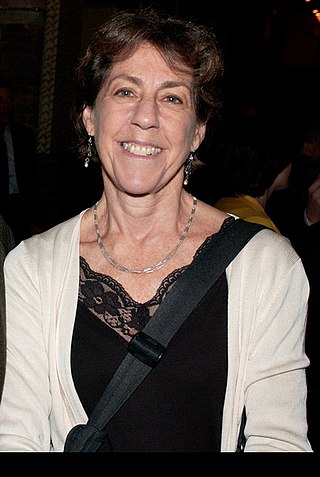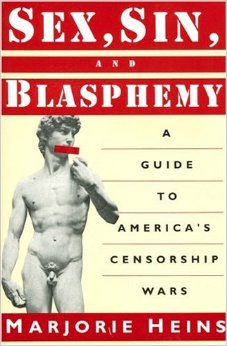See also
- Free Speech, "The People's Darling Privilege" book published in 2000, recognized with the award
- William O. Douglas Prize
The Hugh M. Hefner First Amendment Award is an award created in honor of Playboy founder Hugh Hefner. The Hugh M. Hefner First Amendment Awards were established by Christie Hefner in 1979 to honor individuals who have made significant contributions in the vital effort to protect and enhance First Amendment rights for Americans. Since the inception of the awards, more than 100 individuals including high school students, lawyers, librarians, journalists and educators have been honored.
Nominees have traditionally come from the areas of journalism, arts and entertainment, education, publishing, law, and government, and winners are selected by a panel of distinguished judges.
The judges were Tom Bradley, Mayor of Los Angeles; Jules Feiffer, playwright and social cartoonist; Fay Kanin, president, The Academy of Motion Picture Arts and Sciences; Victor Navasky, editor, The Nation ; and Tom Wicker, columnist and associate editor, The New York Times .
The judges were Edward Brooke, US Senator, Massachusetts; Nat Hentoff, author and columnist, The Village Voice; Fay Kanin, president, The Academy of Motion Picture Arts and Sciences; Judith Krug, director, The American Library Association; and Charles Nesson, Dean, Harvard Law School.
The judges were Yvonne Braithwaite Burke, partner, Kutak, Rode & Huie; Hamilton Fish III, Publisher, The Nation; Florence McMullin, Chair, The Washington Library Association Intellectual Freedom Committee; and Aryeh Neier, Professor of Law, New York University.
The judges were Harriet Pilpel, attorney, Weil, Gotshal & Manges; Studs Terkel, author and nationally syndicated radio show host; and William Worthy, international journalist and civil liberties activist.
The judges were Martin Agronsky, Agronsky and Company; Alan Dershowitz, professor, Harvard Law School; and Liza Pike, Program Director, Center for Investigative Reporting.
The judges were Burton Joseph, attorney, Barsy, Joseph & Lichtenstein; Harriet Pilpel, attorney, Weil, Gotshal & Manges; and Melody Sands, former owner of The Athens News.
The judges were Julius L. Chambers, president, NAACP Legal Defense and Educational Fund; Maxwell Lillienstein, General Counsel, American Booksellers Association; and Anthony Podesta, founding president, People for the American Way.
The judges were Charlayne Hunter-Gault, New York correspondent, The MacNeil / Lehrer NewsHour ; Anthony Lewis, syndicated columnist, The New York Times ; Steven Pico, First Amendment lecturer and advocate; and Tom Wicker, political columnist, The New York Times .
The judges were Judith Krug, director, the American Library Association for Intellectual Freedom; Jack K. Landau, attorney and columnist, Newhouse Newspapers; Clarence Page, Pulitzer Prize-winning columnist, Chicago Tribune; and Harriet Pilpel, attorney, Weil, Gotshal & Manges.
The judges were Herbert N. Foerstel, Head of Branch Libraries, University of Maryland; Robert Scheer, national correspondent, Los Angeles Times; and Maxine Waters, US Representative, California.
The judges were Arthur Kropp, president, People for the American Way; Barry Lynn, Co-host, Battleline news radio talk show; Eve Pell, investigative journalist, Freedom of Information Project; and Tom Wicker, political columnist, The New York Times.
The judges were Dennis Barrie, executive director, Contemporary Arts Center of Cincinnati; Norman Dorsen, Stokes Professor of Law, New York University Law School; Mark Goodman, executive director, Student Press Law Center; Barbara Kopple, documentary filmmaker; and Reginald Stuart, Assistant News Editor, Knight-Ridder Newspapers.
The judges were Rex Armstrong, Attorney and Volunteer Counsel, ACLU of Oregon; Jessica Mitford, author and social activist; and Carl Jensen, Founder, Project Censored.
The judges were Chris Finan, executive director, The Media Coalition; Marjorie Heins, Director and Staff Counsel, ACLU Arts Censorship Project; and Sydney Schanberg, journalist.
The judges were Anthony Griffin, attorney; Bobby Handman, president, People for the American Way; and Burton Joseph, attorney, Barsy, Joseph & Lichtenstein.
The judges were Nadine Strossen, president, ACLU; Peter S. Prichard, president, Freedom Forum; and Ann K. Symons, president, American Library Association.
The judges were Mark Goodman, executive director, Student Press Law Center; Molly Ivins, author and columnist, Creators Syndicate; Barbara Kopple, filmmaker; and Clarence Page, columnist, Chicago Tribune.
The judges were Floyd Abrams, partner, Cahill Gordon & Reindel; Lucy Dalglish; executive director, Reporters Committee for Freedom of the Press; Robert M. O'Neil, director, Thomas Jefferson Center for the Protection of Free Expression; and Nadine Strossen, president, ACLU.
The judges were Margaret Carlson, CNN's The Capital Gang and Time Magazine columnist; Ann Richards, former governor of Texas; and John Seigenthaler, Founder, First Amendment Center.
The judges were Katrina vanden Heuvel, editor and publisher, The Nation; Anthony D. Romero, executive director, American Civil Liberties Union; and Eugenie Scott, executive director, National Center for Science Education.
The judges were Nadine Strossen, president, American Civil Liberties Union and professor of law, New York Law School; Geoffrey Stone, Edward H. Levi Distinguished Service Professor at University of Chicago Law School; and David Rubin, professor and former dean, S.I. Newhouse School of Public Communications, Syracuse University.
The judges were Hector Villagra; Patricia Schroeder; Robert Scheer; and Norman Lear.
The judges were Henry Weinstein from the University of California, Ramona Ripston and Dr. Charles C. Haynes, Director of the Religious Freedom Education Project.
The judges were Margaret Carlson, Laura W. Murphy Director if the ACLU's Washington Legislative Office, and Joan E. Bertin Executive Director of National Coalition Against Censorship.
The judges were Erwin Chemerinsky, Dean and Professor of Law, University of California Berkeley School of Law; Lara Bergthold, Principal Partner at RALLY; and Davan Maharaj, editor-in-chief and Publisher of the Los Angeles Times Media Group.
The judges were Michael A. Bamberger, Author and Senior Counsel at Dentons; Shelby Coffey III, Journalist; and Zephyr Teachout, Political Activist and Professor at Fordham University School of Law. [6]
The judges were Karen Tumulty, Columnist and Correspondent; Neal Katyal Professor of Law and former Acting Solicitor General of the United States; and Michael B. Keegan, president of People for the American Way and People for the American Way Foundation. [7]
The judges were Ted Boutros, partner at Gibson, Dunn & Crutcher LLP, and global co-chair of the firm's Litigation Group; and Kyle Pope, editor-in-chief and publisher of the Columbia Journalism Review.
The judges were Allison Stanger, Russell Leng ’60 Professor of International Politics and Economics at Middlebury College; Julia B. Chan, editor-in-chief of The 19th, an independent, nonprofit newsroom; and Will Creeley, Legal Director of the Foundation for Individual Rights in Education (FIRE).

The American Civil Liberties Union (ACLU) is an American nonprofit civil rights organization founded in 1920. ACLU affiliates are active in all 50 states, Washington, D.C., and Puerto Rico. The budget of the ACLU in 2024 was $383 million.

The Foundation for Individual Rights and Expression (FIRE), formerly called the Foundation for Individual Rights in Education, is a 501(c)(3) non-profit civil liberties group founded in 1999 with the mission of protecting freedom of speech on college campuses in the United States. FIRE changed its name in June 2022, when it broadened its focus from colleges to freedom of speech throughout American society.
Free speech zones are areas set aside in public places for the purpose of political protesting. The First Amendment to the United States Constitution states that "Congress shall make no law ... abridging ... the right of the people peaceably to assemble, and to petition the Government for a redress of grievances." The existence of free speech zones is based on U.S. court decisions stipulating that the government may reasonably regulate the time, place, and manner – but not content – of expression.
The James Madison Freedom of Information Award is a San Francisco Bay Area honor given to individuals and organizations who have made significant contributions to the advancement of freedom of expression, particularly freedom of information.

Norman Dorsen was the Frederick I. and Grace A. Stokes Professor of Law and Co-Director of the Arthur Garfield Hays Civil Liberties Program at the New York University School of Law, where he specialized in Constitutional Law, Civil Liberties, and Comparative Constitutional Law. Previously, he was president of the American Civil Liberties Union, 1976–1991. He was also president of the Society of American Law Teachers, 1972–1973, and president of the U.S. Association of Constitutional Law in 2000.
The Radio Television Digital News Association, formerly the Radio-Television News Directors Association (RTNDA), is a United States-based membership organization of radio, television, and online news directors, producers, executives, reporters, students and educators. Among its functions are the maintenance of journalistic ethics and the preservation of the free speech rights of broadcast journalists.

Gregory Christopher Lukianoff is an American lawyer, journalist, author and activist who serves as the president of the Foundation for Individual Rights and Expression (FIRE). He previously served as FIRE's first director of legal and public advocacy until he was appointed president in 2006.

David D. Cole is the National Legal Director of the American Civil Liberties Union (ACLU). Before joining the ACLU in July 2016, Cole was the Hon. George J. Mitchell Professor in Law and Public Policy at the Georgetown University Law Center from March 2014 through December 2016. He has published in various legal fields including constitutional law, national security, criminal justice, civil rights, and law and literature. Cole has litigated several significant First Amendment cases in the Supreme Court of the United States, as well a number of influential cases concerning civil rights and national security. He is also a legal correspondent to several mainstream media outlets and publications.

Marjorie Heins is a First Amendment lawyer, writer and founder of the Free Expression Policy Project.
John Hamilton Adams is an environmental activist, lawyer, and founder of the Natural Resource Defense Council (NRDC). He co-founded the NRDC in 1970 and served as the executive director until 1998 when he became the President. As of 2006, Adams is the Founding Director of the organization. With the help of his team at the NRDC, Adams has worked on numerous environmental movements including passing the Clean Water Act, phasing of lead from gasoline, and curbing the emissions of coal-burning power plants.

Free Speech, "The People's Darling Privilege": Struggles for Freedom of Expression in American History is a non-fiction book about the history of freedom of speech in the United States, written by Michael Kent Curtis and published in 2000 by Duke University Press. The book discusses the evolution of free speech in the U.S. within the context of actions of individuals and how they affected change. The author writes that protests and actions by citizens helped to evolve the notions surrounding free speech in the U.S. before definitive statements on the matter from U.S. courts. Curtis writes that free speech rights were first developed in "the forum of public opinion," and that, "The history of free speech shows the need for broadly protective free speech rules applied generally and equally."

Jessica Ahlquist is an American activist and public speaker who filed a lawsuit in 2012 against Cranston High School West, where she was a student, to remove a religious prayer from its auditorium. The suit, Ahlquist v. Cranston, was filed with the assistance of the American Civil Liberties Union, and was ultimately decided in Ahlquist's favor. During the lawsuit, Ahlquist received hate mail and was verbally attacked by her peers, media outlets, and online. She received death threats, and required police escorts to and from classes. On the day following the ruling, Rhode Island State Representative Peter G. Palumbo spoke on a local radio show and referred to Ahlquist as "an evil little thing".

American Civil Liberties Union v. Clapper, 785 F.3d 787, was a lawsuit by the American Civil Liberties Union (ACLU) and its affiliate, the New York Civil Liberties Union, against the United States federal government as represented by then-Director of National Intelligence James Clapper. The ACLU challenged the legality and constitutionality of the National Security Agency's (NSA) bulk phone metadata collection program.

Not in Front of the Children: "Indecency," Censorship, and the Innocence of Youth is a non-fiction book by attorney and civil libertarian, Marjorie Heins about freedom of speech and the relationship between censorship and the "think of the children" argument. The book presents a chronological history of censorship from Ancient Greece, Ancient Rome and the Middle Ages to the present. It discusses notable censored works, including Ulysses by James Joyce, Lady Chatterley's Lover by D. H. Lawrence and the seven dirty words monologue by comedian George Carlin. Heins discusses censorship aimed at youth in the United States through legislation including the Children's Internet Protection Act and the Communications Decency Act.

Sex, Sin, and Blasphemy: A Guide to America's Censorship Wars is a non-fiction book by lawyer and civil libertarian Marjorie Heins that is about freedom of speech and the censorship of works of art in the early 1990s by the U.S. government. The book was published in 1993 by The New Press. Heins provides an overview of the history of censorship, including the 1873 Comstock laws, and then moves on to more topical case studies of attempts at suppression of free expression.
The Washington Redskins trademark dispute was a legal effort by Native Americans to define the term "redskin" to be an offensive and pejorative racial slur to deprive the owners of the NFL's Washington Redskins of the ability to maintain federal trademark protection for the name. These efforts had primarily been carried forward in two cases brought before the U.S. Patent and Trademark Office (USPTO). While prevailing in the most recent case in which the trademarks were cancelled, petitioners withdrew for further litigation now that the legal issue has become moot due to a decision in another case which found the relevant portion of the trademark law to be an unconstitutional infringement on freedom of speech.

Pat Gish was an American journalist, publisher and co-editor of the Whitesburg, Kentucky newspaper The Mountain Eagle, along with her husband, Tom Gish. The Gishes led The Mountain Eagle in covering controversial topics such as the effects of strip mining on the Appalachian environment and political corruption. Under the Gishes' guidance, The Mountain Eagle became a prominent rural newspaper, and the pair won many awards for their journalism. Gish also founded the Eastern Kentucky Housing Development Corporation and worked to improve living conditions in Eastern Kentucky.

Robyn Ellen Blumner is an American attorney, civil rights expert and the current president and chief executive officer (CEO) of the secular educational organization Center for Inquiry (CFI) and executive director of the Richard Dawkins Foundation for Reason and Science. She holds a J.D. degree and worked for several years as director of local affiliates of the American Civil Liberties Union advocating for civil liberties and civil rights before becoming a newspaper columnist and editorial writer in Florida.
Stanley Fleishman (1920–1999) was an American attorney best known for his expertise in the constitutional defense of the First Amendment in obscenity cases and for his advocacy on behalf of the disabled community.

The Viking Saga is the student newspaper of Northwest High School in Grand Island, Nebraska, in the United States. In April 2022, the staff of the paper was told that transgender writers should not use their preferred names on bylines and instead must use the names they had been given at birth.
{{cite news}}: |author= has generic name (help)